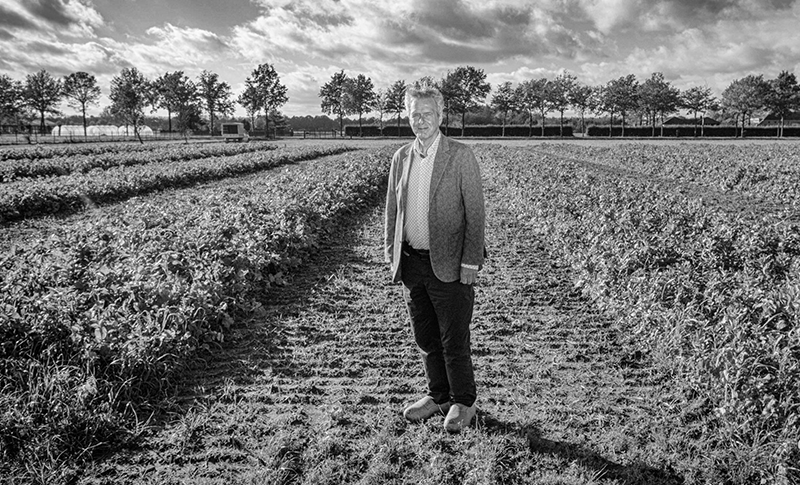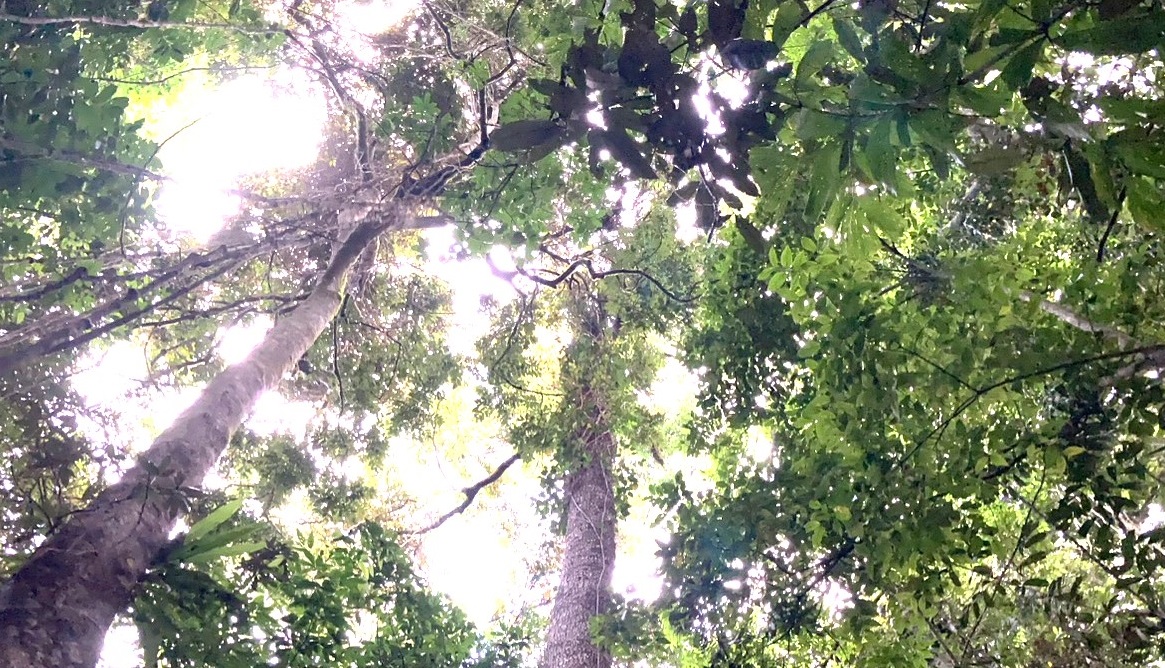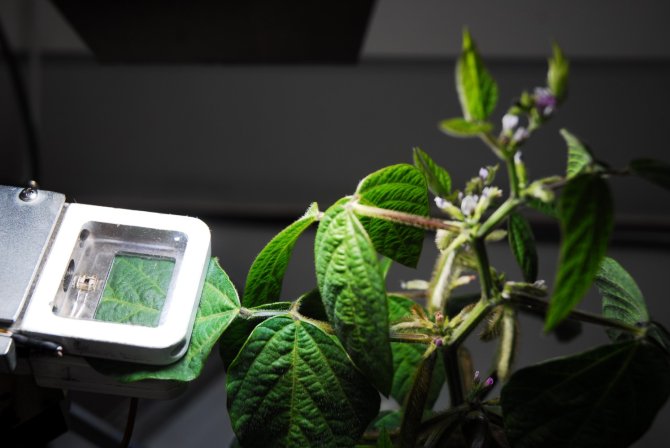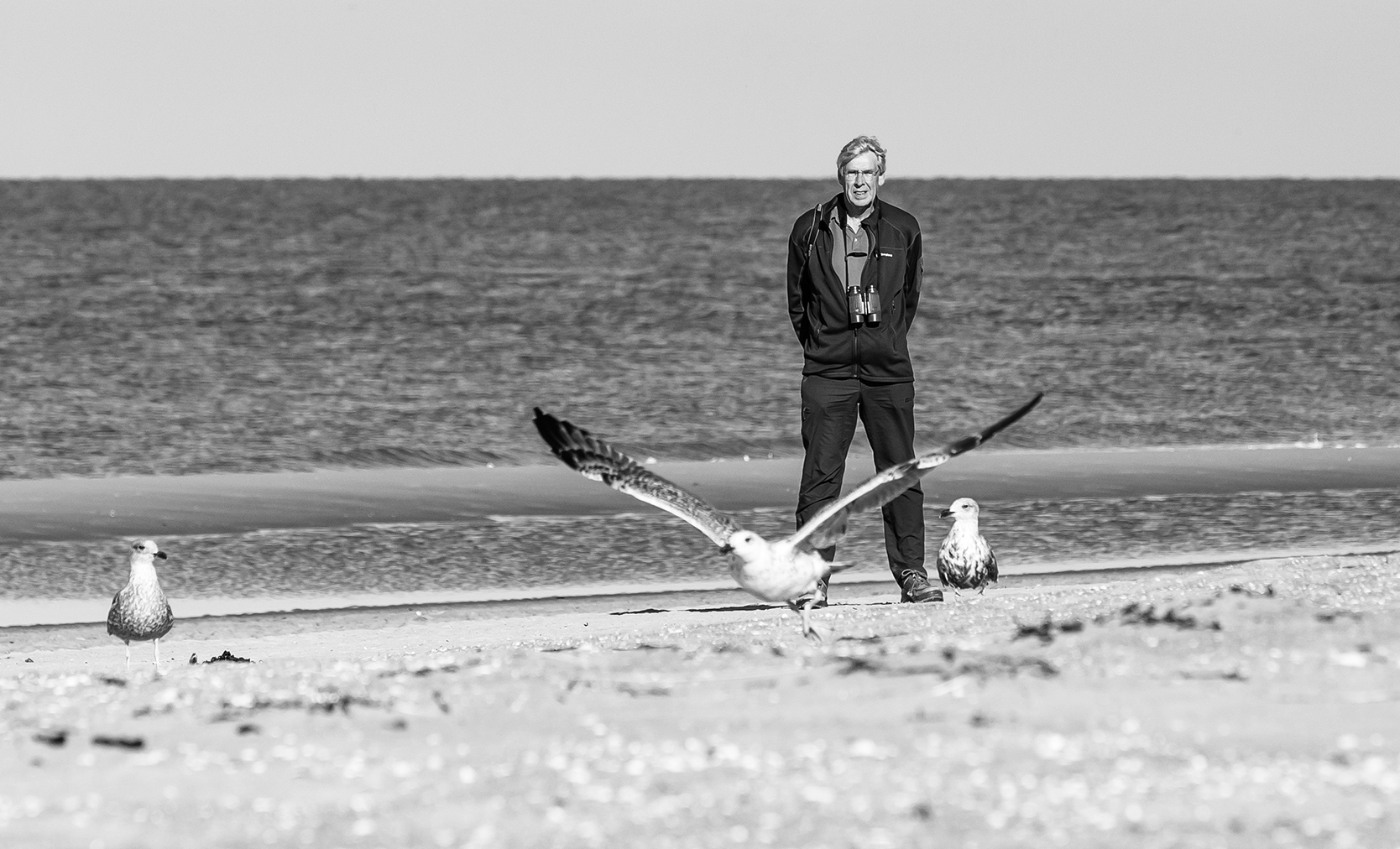Paul Struik has been on the Wageningen scene for 50 years. Now the professor of Crop Physiology has got to retire. Reluctantly.
He was supposed to retire at 67, actually. But Paul Struik found a loophole that enabled him to go on for another two years. Since spring this year, he has really been a pensioner. His farewell is on 23 November. Well, sort of, because he will go on supervising PhD researchers as before. He has a respectable 123 to his name. ‘There will be three more this month and I’ve got quite a few still in the pipeline,’ he says. ‘I hope to reach 140.’
Struik thinks he still remembers all their names. ‘After all, I worked with them for a long time. Sadly, some have already passed away.’ When it comes to numbers of PhDs, he is second only to Professor Richard Visser (with 159). ‘But the number itself is not what I’m proud of. I’m proud of the contents of the theses, their diversity and the collaborations they produced. The theses are about many different crops and production systems. Including crops we are not familiar with in the Netherlands. That keeps it very interesting for me.’
Paul Struik started in 1973 on a degree programme in Agricultural Plant Breeding. He grew up in Haarlemmermeer, but not on a farm. ‘I occasionally thinned out beets in early spring as a side job. All day on your knees between the rows of beets. It was not a pleasant job.’ He really wanted to study Tropical Plant Breeding. ‘But I was in a relationship and my fiancée absolutely did not want to go to a tropical country.’ He nevertheless travelled a lot to the tropics later in his career. As a professor, you travel a lot. He thinks he has supervised PhD students from about 40 countries.
How has your academic field developed?
‘Back in the 1970s and 80s, we focused a lot on agronomics, looking for the best farming methods. Until at some point that started to be seen as a subject that academics shouldn’t be focussing on. It was too applied and too practical for us. Now it’s in again, and it’s allowed. That is partly because we gained masses of molecular and genetic knowledge, but we forgot to look at what it meant for the farmer. How does a farmer benefit? That’s a complex change of focus.’
Isn’t that right up your street?
‘I tried to get into that niche. On the one hand, by reformulating important issues for the farming sector as fundamental research questions for molecular scientists. And at the same time, by applying molecular knowledge to crop farming. What changes when you do that? For example, a great deal of research is done on how photosynthesis works, but what do you do with that on the farm?
Via modelling, my group has developed a much more precise way of experimenting with photosynthesis. That took us 20 years
Very little. The question of how we can make photosynthesis more efficient at crop level is quite different to the question of how you do it at the molecular and enzymatic level.’
The new photosynthesis institute focuses on improving that practical efficiency. Did you have a hand in that?
‘I was involved in the preparations, along with many other people. In my farewell lecture, I will show how I think it should be approached. We need to look at what basic biophysical and biochemical processes mean at different levels. You can make processes like photosynthesis very efficient at the leaf level, but it’s got to be efficient at the crop level and what’s more, throughout the entire growing season. Those are different levels of organization, each with their own laws. What do you really need to know about photosynthesis in order to make crops more suitable for production? That involved very different things than the ones we do research on for ages in order to understand the process of photosynthesis. We work a lot on the energy jumps made by electrons in picoseconds. But a farmer doesn’t work with picoseconds.’
What do you see as your biggest contribution to science?
‘Using modelling, my group has developed a much more precise way of experimenting and measuring photosynthesis. That took us 20 years. Initially, we were much better at modelling than at measuring. Now we can measure photosynthesis well too. And we can therefore make more precise models, at different levels from sub-leaf to the whole crop. I have also done a lot of work on propagating material systems for crops that propagate vegetatively, such as potatoes, cassava and sweet potatoes. Non-sexual reproduction is vulnerable to diseases and pests that can be transmitted through the propagating material.
I’m disappointed in the natural and social sciences integration; 20 years of interdisciplinary collaboration hasn’t broken down many old paradigms
The propagation system is not as well organized in many countries. As a result, things can go wrong during propagating and all sorts of pests and diseases can affect generation after generation. That eventually leads to lower yields because the propagation material is thoroughly diseased. I’ve done a lot of work on improving that situation.’
Now there is a hybrid potato, which does reproduce via seeds. Problem solved?
‘Propagation via seeds goes much faster than the slow vegetative propagation via tubers that you have to plant out. There are hundreds of seeds in one berry, and loads of berries on one plant. Per hectare of land, 25 grams of seed will suffice, as opposed to 2000 kilos of tubers. So the logistics of transport and storage are far simpler. Also, hybrid seed doesn’t carry any diseases and can be stored for a long time. But it has its disadvantages as well. A small seed is quite different to a tuber, and it doesn’t provide that very early growing power that a young potato plant gets from a tuber. You can solve that by having specialized plant breeders breed and distribute seedlings from seed. It would be even better to get seedlings producing tubers and then distribute those, but then you lose much of the practical advantage of seed. So it’s not so easy to develop a good business model for plant breeders.’
You’ve worked a lot with social scientists in the course of your career. You were ahead of your time with that multidisciplinary approach. How did it come about?
‘It started with a programme in West Africa, in which the task was to define issues together with farmers and arrive at solutions through a joint learning process. That called for collaboration with sociologists, which is not so simple. You have to get to know their language and their academic culture. And they have to learn how agronomists think and work. Then I started doing the same in other programmes and situations. I learned a lot from that collaboration, and I think it’s one of the crowning achievements in my work. But I’m also disappointed in the so-called natural and social sciences integration in which PhD researchers integrate two subject areas in their research, with one supervisor from each field.
And may I just end by saying this: WUR should pay its secretaries much better
That only works if the supervisor is doing that integrating as well. And that doesn’t happen enough. Twenty years of interdisciplinary collaboration hasn’t broken down many old paradigms. And I get the feeling that enthusiasm for that collaboration has diminished, partly because it hasn’t achieved much scientifically. There aren’t many multidisciplinary journals with a high impact factor. If you’re pursuing an academic career, natural-social sciences integration is not helpful.’
Your work is over, although you will continue to supervise PhDs. You’ll have lots of spare time. Any plans?
‘I’m going to write a book. An absurdist novel. I started it a few years ago, and now I’m going to finish it. And then I’ll put it in a drawer. It doesn’t need to be published. Writing is great fun, but I’m not writing this book for a reader’s enjoyment. I’m writing it because I enjoy it so much myself. And may I just end by saying this: WUR should pay its secretaries much better.’

 The propagation system is not as well organized in many countries. As a result, things can go wrong during propagating and all sorts of pests and diseases can affect generation after generation. I’ve done a lot of work on improving that situation.’ Photo Guy Ackermans
The propagation system is not as well organized in many countries. As a result, things can go wrong during propagating and all sorts of pests and diseases can affect generation after generation. I’ve done a lot of work on improving that situation.’ Photo Guy Ackermans 

